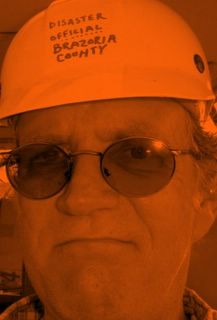Dow's "human element" falls short
When someone dies -- a coworker, a friend, even a remote acquaintance -- it's customary to extend condolences to the dead person's family. Especially the children and such.
It's just good manners.
Not at Dow Chemical Co.
When the local paper rang up the local Dow mouthpiece to comment on the news that the death of Gerald Hamilton, 36, of Galveston, was due to chlorine exposure at the plant, what'd she say?
Dow spokeswoman Tracie Copeland said she wouldn’t comment on results of the autopsy until the company’s legal department and its in-house physician had the opportunity to review the document. [link]
The "document" in question is the autopsy on Mr. Hamilton, which was 10 months in the making for unexplained reasons.
Mr. Hamilton was a union process operator who was said to be wearing a breathing apparatus when the chlorine leak occurred.
Now, we're not saying the Dow spokeslady should have admitted any liability on the part of the company. Of course she shouldn't. That's not her job.
But it wouldn't have hurt to say the company regrets what happened, that it extends its conolences to the the dead man's family, whatever.
It just woulda been the decent thing to do, in our view.
It would have comported nicely with Dow's "Human Element" advertising campaign, especially since Mr. Hamilton is leaving two young daughters behind.
(If the Dow spokeslady did indeed express some form of human element sympathy and simply wasn't quoted by the local reporter, we withdraw the criticism. But we doubt that happened, for sure.)
One other thing before we're through.
The local paper said a "third of a gallon" of chlorine was released in the emissions event last November that killed Mr. Hamilton.
We checked the reports Dow has filed with the state environmental agency and the only chlorine release we could find last November occurred on Nov. 30 and it involved 51 pounds of chlorine.
The emission event (51 lbs. chlorine release) occurred when two pressure transmitters supported on � inch Schedule 80 piping snapped off when the chlorine compressor (C-782A) experienced excessive vibration. We believe that liquid chlorine entered the suction of the compressor causing the excessive vibration. We believe chlorine gas condensed in the suction piping because of a rapid drop in ambient temperature (approximately 30 degrees in 60 minutes) after a cold front went through the area. Our main design focus has been to manage excessively high temperatures not low temperatures. [link]
It all reminds us of a Merle Haggard song, "A Working Man Can't Get Nowhere Today."
''...tonight i work my fanny off
and i leave it lay
a working man can't get nowhere today.
for years i've been bustin my rear
trying to make a living
but it ain't made
for years i've been paying off my bills
but they still ain't paid
seems like every dime i make
i owe to everyone i know
the higher down i go
this old broken back of mine
is all i got to show
anyway
a workin man can't get nowhere today...
i pay my income tax
and the government sends back what i got comin
and ya know
it ain't much
i pay my child support cause i'm law abiding sort and an easy touch
i starve myself just to keep my family fed
tighten up my budget
try once just to get ahead
i'll still be in debt
the day that i fall dead
and that's why i say
a workin man can't get nowhere today ..."














3 comments:
Why did the local paper not look up the emission reports?
i don't know.
If they offered condolences to her, then they would have to call everyone affected by Agent Orange and all the sick people in Bhopal.
Post a Comment